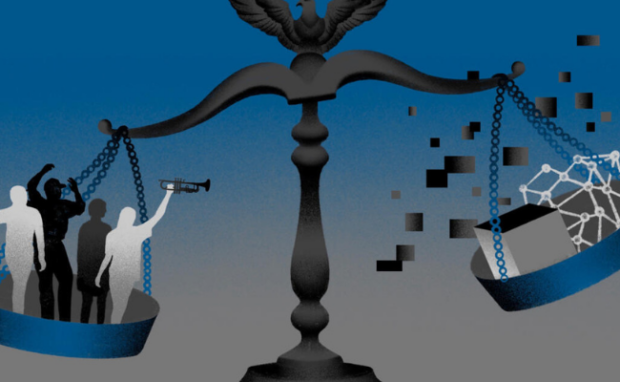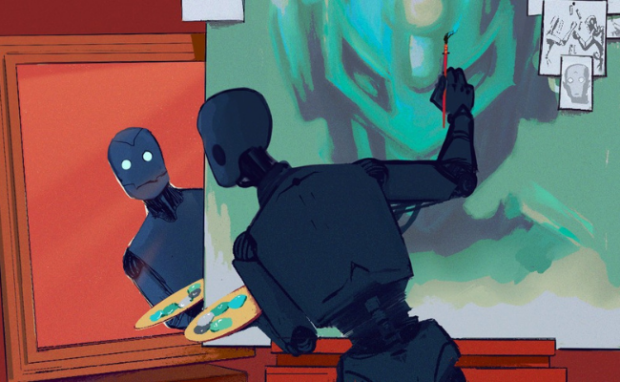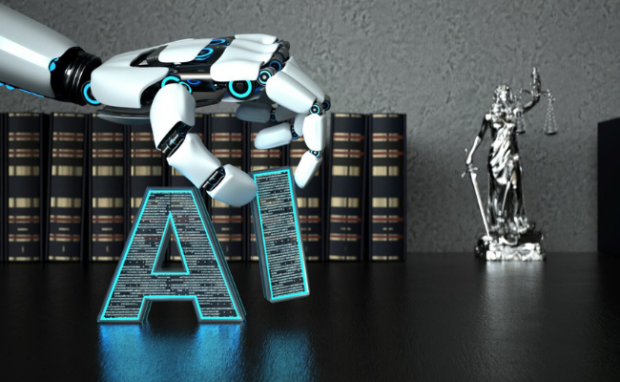The US Copyright Office wants your thoughts on AI copyright
The US Copyright Office opened a public comment period regarding artificial intelligence and copyright issues. In other words, this government agency allows everyone to send their opinions regarding how the country must handle AI and its intellectual property impacts. You may send them via paper mail and email until the end of 2023.
Many fear artificial intelligence may take over creative professions like artists, writers, and musicians. After all, it proved it could create articles, images, and songs with minimal human input. If you strongly believe this topic, this event is your chance to voice your concerns. Perhaps it will shape how the country protects the creative passions of its citizens.
This article will elaborate on the US Copyright Office’s public comment period. Then, I will explain why owning intellectual property is becoming more difficult as AI takes over.
How will the public comment period work?

Photo Credit: themarkup.org
The US Copyright Office opened its public comment period for AI and copyright issues on August 30, 2023. The Federal Register announced the event, which asks the following questions:
- This Notice seeks information about the collection and curation of AI datasets and how those datasets are used to train AI models, the sources of materials ingested into training, and whether permission by and/or compensation for copyright owners is or should be required when their works are included.
- The Office seeks comment on the proper scope of copyright protection for material created using generative AI.
- The Office is interested in how copyright liability principles could apply to material created by generative AI systems.
You may also like: Ameca robot sees bright future for bots and humans
Moreover, the Copyright Office noted artists and performers voiced their opinions regarding generative AI mimicking their voices, likenesses, and styles. These folks want to know how the government should protect their creative input.
You may send your comments to regulations.gov. Also, you may learn more about the instructions at https://copyright.gov/policy/artificial-intelligence.
Why did the US Copyright Office hold this event?

Photo Credit: eff.org
The US government sees the growing concerns regarding AI copyright. Consequently, it plans to write laws regarding this issue. However, it needs the people’s opinions regarding how it could serve them better.
The Department of Health and Human Services (HHS) explained, “The public plays an extremely important role by commenting on proposed rules and other documents that solicit public input, such as requests for information that sometimes lead to formal rulemaking.”
“These comments can help shape the Department’s decisions,” it added. Also, the US Copyright Office explained in its Federal Register announcement:
“Over the last year, artificial intelligence (“AI”) systems and the rapid growth of their capabilities have attracted significant media and public attention. One type of AI, “generative AI” technology, is capable of producing outputs such as text, images, video, or audio (including emulating a human voice) that would be considered copyrightable if created by a human author.”
“The adoption and use of generative AI systems by millions of Americans, and the resulting volume of AI-generated material, have sparked widespread public debate about what these systems may mean for the future of creative industries and raise significant questions for the copyright system.”
Why is AI copyright complicated?

Photo Credit: information-age.com
Copyright has been a fairly simple concept for many years. Having a copyright means you have ownership of an intellectual property like a piece of art or music.
Most laws worldwide apply copyright on things people make. However, machines and software can now create pictures, songs, and articles with little to no human input.
Developers trained these AI content generators with copyrighted works. In response, their artists sued AI companies for allegedly infringing their IP rights.
Meanwhile, people making AI-generated content wanted to copyright their works. They argued you need skills to make an AI generator create what you want.
My other article discussed how you can get your desired results from AI tools by submitting effective prompts. Arguably, you need English skills and practice to use them excellently.
You may also like: OpenAI is making a copyright-friendly ChatGPT
The US Copyright Office and Federal courts ruled people cannot get copyrights for AI-generated content. Still, we need more laws for those who want to turn artists’ likenesses into AI models.
Hollywood recently went on strike after studios allegedly wanted to replicate them as AI models. Worse, these companies reportedly proposed giving them no compensation for their work. SAG chief negotiator Duncan Crabtree-Ireland said:
“The groundbreaking AI proposal that they gave us yesterday…they proposed that our background performers should be able to be scanned, get paid for one day’s pay, and their company should own that scan, their image, their likeness, and to be able to use it for the rest of eternity in any project they want, with no consent and no compensation.”
Conclusion
The US Copyright Office held a public comment period to hear the peoples’ opinions regarding AI and copyright regulations. If you’re outside the United States, this issue may seem irrelevant.
Yet, your country will soon face similar issues and look to neighboring nations for inspiration. Consequently, this issue will help you understand how AI will affect your artists.
More importantly, it tackles the more profound and intimate concept of securing creativity as an essential part of being human. Learn more about the latest digital trends at Inquirer Tech.